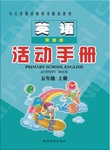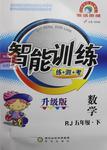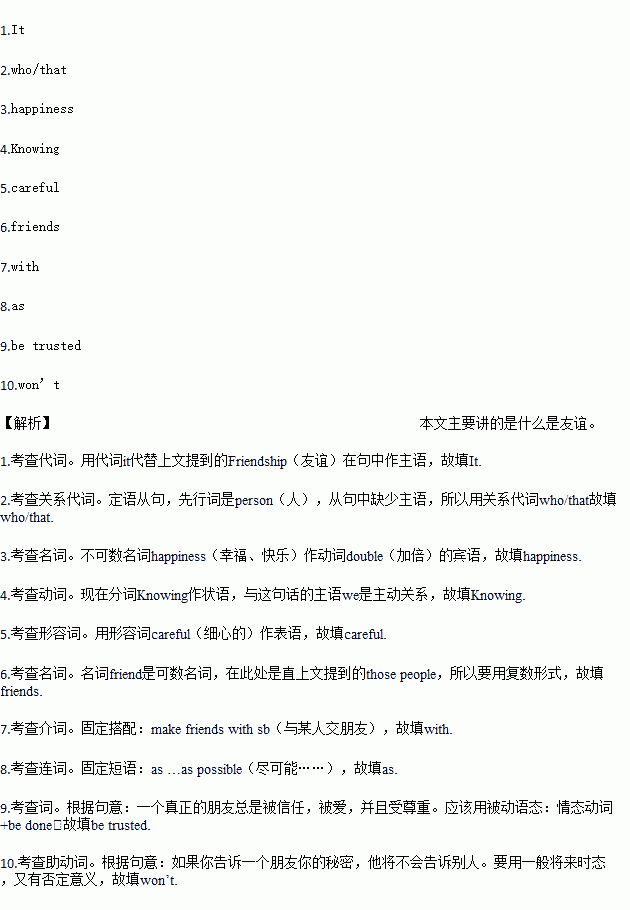题目内容
Friendship is important in our life.1.is very difficult to find a better definition of friendship. A true friend is the person 2. can share all our sadness and double all our3. (happy). And he or she is always at our side to give us his or her help and comfort.
4. (know) how valuable friendship is, we should be ve ry 5. (care) with our choice of a friend. We should choose those people with a good character as our 6. (friend), but we must try to avoid making friends 7. a bad man. Besides, we should forgive their mistakes and try to help them as much 8. possible.
ry 5. (care) with our choice of a friend. We should choose those people with a good character as our 6. (friend), but we must try to avoid making friends 7. a bad man. Besides, we should forgive their mistakes and try to help them as much 8. possible.
A true friend can always 9. (trust), loved and respected. If you tell a friend your secrets, he or she 10. (will) tell others. Friends share their joys and sorrows. They help each other when they are in trouble, and cheer each other up when they are sad. In conclusion, if you have a good friend, don’t  forgive him or her.
forgive him or her.
 互动课堂系列答案
互动课堂系列答案 激活思维智能训练课时导学练系列答案
激活思维智能训练课时导学练系列答案
